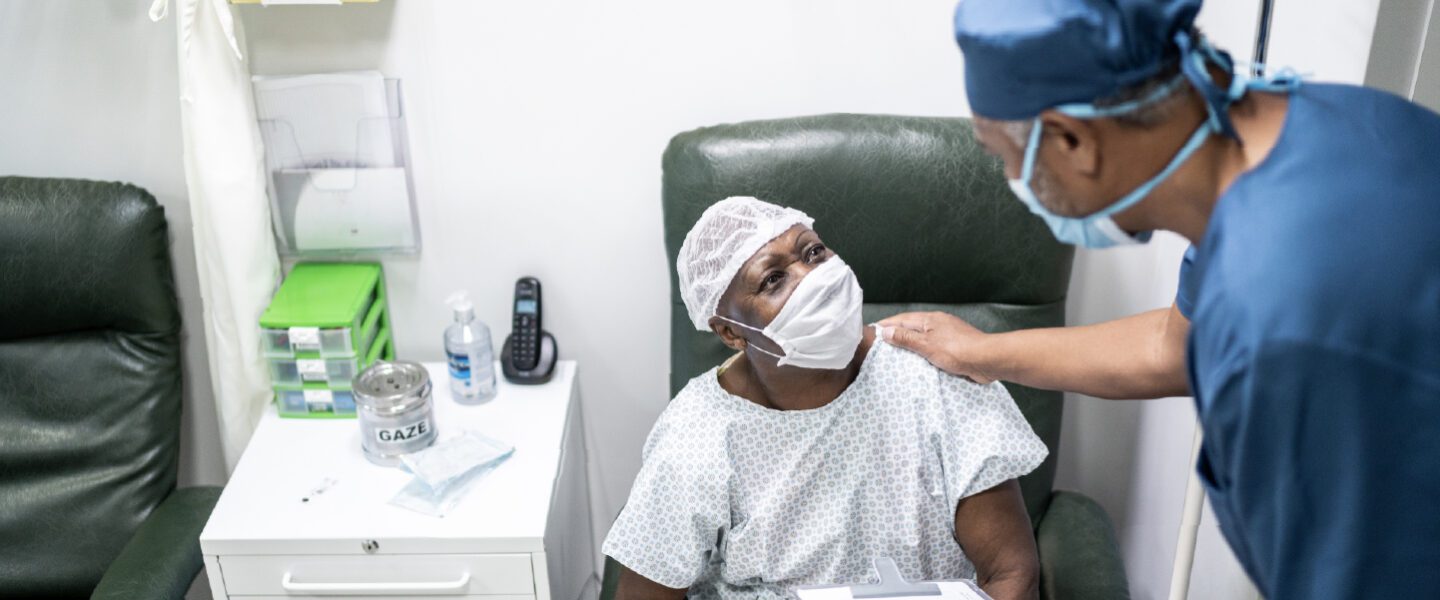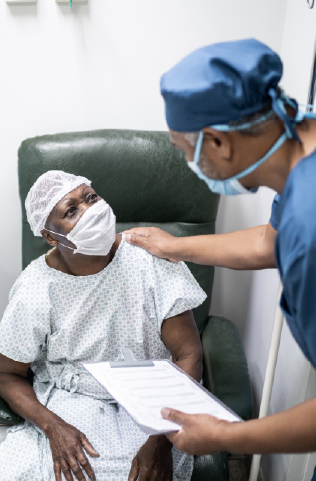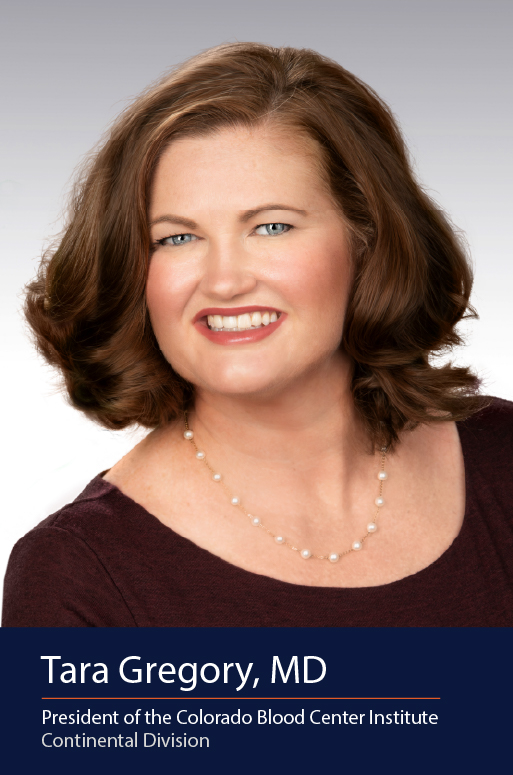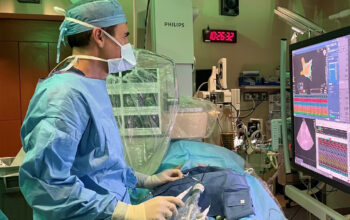Colorado blood cancer patients benefit from care teams with deep expertise and commitment to the evolution of care.


When it comes to cancer care, physicians don’t always get the chance to develop long-standing relationships with their patients. Tara Gregory, MD, president of the Colorado Blood Cancer Institute in Denver, Colorado, values the unique opportunity she has to build those relationships. It’s one of the reasons she was drawn to specializing in blood cancers.

“As an oncologist, by the time a patient gets to you to receive chemotherapy, their cancer could not be surgically removed or treated with radiation. A lot of times, you’re offering chemotherapy just to give patients more time,” she says. “But with blood cancer, our treatments have the possibility of offering cures to patients or allowing them to continue to live with cancer. So, you are going to deal with it every day of your life, but it isn’t going to end your life.”
This ongoing physician-patient relationship helps the Colorado Blood Cancer Institute stand out as a top-ranked program in cancer care. The institute exists in partnership with Presbyterian/St. Luke’s Medical Center, which is also in Denver and was named the No. 1 hospital for cancer care in Colorado and No. 46 in the nation by U.S. News & World Report last year. The report recognized their care of patients with blood cancers such as leukemia, multiple myeloma and lymphoma.
The rankings suggest that the hospital, in partnership with the Colorado Blood Cancer Institute, Sarah Cannon Cancer Institute and its care teams offers better survival odds and fewer complications, while also treating more patients.
Dr. Gregory attributes their success at the Colorado Blood Cancer Institute to outstanding teams providing best-in-class care — and their involvement in clinical research trials. Additionally, they have leveraged telehealth to serve patients, including those outside of their geographic area.
“We’re really proud of how hard everyone works and how dedicated everyone is to the individual patient,” Dr. Gregory says. “To see that recognized on such a large, national scale has given us a ton of pride and validation.”
Collaborative teams providing excellent care
The Colorado Blood Cancer Institute has the 19th-largest bone marrow transplant program in the nation. It’s also one of the few national programs that performs bone marrow transplants for patients with autoimmune and rare disorders. Such therapy has evolved and been renamed immune effector cell therapy, or IECT. For many patients, chemotherapy alone isn’t enough to cure their cancer. Instead, they need new immune systems through blood stem cell transplants.

Collaborative teams providing excellent care
Often, the transplant and blood cancer units work together, which requires comprehensive large care teams that include nurses, pharmacists, social workers, dietitians and consultants. In addition to transplant care, CBCI (Colorado Blood Cancer Institute) has been approved, since 2017, to provide a treatment called immune effector cell therapy, or IECT.
“[There are] a ton of moving parts,” Dr. Gregory says. “Patients tell me all the time that they just can’t believe that medical care could be this good and that there are outstanding nurses who really care about them. They form deep relationships. We have a social work team that helps to keep our patients financially safe so that they can continue with their therapies. Our consultants, radiologists, kidney doctors, the infectious disease doctors, the ICU doctors, cardiologists — they are fabulous consultants who understand what we do and help us manage the program.”
Research, clinical trials and the future of treatment
Another key success factor is faster access to newer therapies for patients, says Dr. Gregory.
“We’re highly involved in academia,” Dr. Gregory says. “We have a lot of participation in research studies (through the Sarah Cannon Research Institute) and enrollments because your next best treatment is available on a clinical trial. Nationally, we’re recognized as being able to get newer therapies to patients [faster], so we’re able to get early adoption of new, complex therapies.”
The field of blood cancer is rapidly evolving to promote better treatment and outcomes.
This is possible through a lot of trust and commitment from the larger team to help provide newer therapies. Caregivers remain agile and ready, making the adjustments needed for a patient’s care.
“We seem to be ahead of the curve, nationally, in getting these therapies into our office and to our patients,” she says. “I think patients do better when they have early access to clinical trials, different medications and therapies. Our participation in the Sarah Cannon Research Institute allows us to continue to offer those therapies to patients.”
Dr. Gregory says that since her entry into the field, there have been exciting developments in treating patients with blood cancers like myeloma. Peripheral blood stem cell transplants can now help patients in their 60s and older. They can also draw from more genetically diverse stem cell donors to match patients of different ethnicities. Drug therapies are no longer just killing cancer cells but can also teach them to connect to boost the immune system.
“The science and the understanding of the human genome, the biology of different cancers, cell signaling, just looking at new drug opportunities and targets — that’s where we’ll keep moving this therapy,” Dr. Gregory says. “I think our goal is [that] we want to be able to cure every cancer and maybe even prevent some.”
Telehealth helps expand reach
More blood cancer patients can now receive treatment and try emerging therapies, even if they don’t live anywhere near Denver. Many CBCI physicians travel to outreach clinics as far away as New Mexico, Montana or Wyoming.
“We’re able to meet patients in their own community and tell them about the different therapies that [we] have available in Denver,”— Tara Gregory, MD President of the Colorado Blood Center Institute Continental Division
Patients requiring certain treatments can end up staying in Denver anywhere from one to three months. They can receive help with temporary housing for their initial treatments, and then they can return to their homes to receive follow-up care through telehealth or their local physicians.
“One of the things that’s been a total game changer, I think, for the care of patients — especially in regions where we’re just so geographically far apart — is telehealth,” Dr. Gregory says.
Patients can get their lab work and treatments done locally but regroup with the Colorado Blood Cancer Institute through telehealth. Their staff can also review patient results, discuss their progress and make recommendations without having to add that burden of travel just for a short appointment.
Excellence at a glance
As a network partner of the Sarah Cannon Cancer Institute, the Colorado Blood Cancer Institute is an industry-leading option for cancer patients:
- Is nationally ranked the 19th-largest bone marrow transplant (BMT) program
- Is one of the very few programs in the country that performs BMTs for patients with autoimmune and rare disorders.
- Has completed 5,860 BMTs since the program’s inception 32 years ago; of that volume, 3,700 auto BMTs and 2,159 allo BMTs have been completed.
- Infuses an average of 310 BMTs annually.
- Has been approved to provide commercial CAR T cell therapy since 2018.
- Has infused 318 CAR T.
- Is strongly aligned with academia regarding research advancing hematologic care.
- Has a very unique program that provides ICU care to ensure the best quality care provided for profoundly pancytopenic patients(those who are transfusion dependent or at high risk of infections).
- Has a dedicated blood cancer care unit that’s not mixed with other med-surg.


